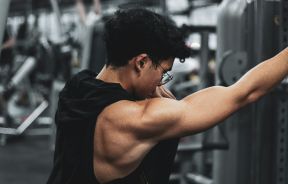Pfizer’s COVID-19 Booster Shot Effective For At Least 9-10 Months: Study
There is still this sense of uncertainty when it comes to the overall COVID-19 situation as several countries are reporting more cases while some are noting drops in transmissions. Amid the pandemonium, many are turning booster shots as a way to generate optimum protection against SARS-CoV-2. And so far, there is mounting evidence that the additional doses could make a big difference amid the ongoing pandemic.
Efficacy Of Booster Shots
Pfizer is the first pharmaceutical company to be allowed to roll out booster shots for its COVID-19 vaccine. Based on preliminary data from Israeli research, the third dose does not only yield more antibodies, it also produces antibodies that do better when it comes to preventing infection.
Researchers at the Tel Hashomer Hospital found that the antibodies produced by the booster shots are able to provide improved protection compared to the first two doses of the vaccine. In addition, the booster shots were also found to be effective for at least 9-10 months or even longer, The Times of Israel reported.
For the study that was funded by Harvard Medical School and conducted by Israel’s largest HMO Clalit Health Services, researchers analyzed data from 728,321 people who received the booster jabs and compared it to the data of a control group of a similar number of people who only got the first two vaccine doses.
“The results demonstrate in a very convincing way that the third dose of the vaccine is extremely efficient,” Clalit’s chief innovation officer Ran Balicer said.
COVID-19 Vaccine Booster Rollout
The Food and Drug Administration (FDA) officially authorized the use of Pfizer-BioNTech’s COVID-19 vaccine booster in September. During its initial rollout, the federal agency indicated that individuals 65 years and beyond should be prioritized, along with people aged 18 through 64 with conditions that put them at a high risk of suffering severe infection. The FDA also listed the populations who are strongly encouraged to get the booster shots right away.
“After considering the totality of the available scientific evidence and the deliberations of our advisory committee of independent, external experts, the FDA amended the EUA for the Pfizer-BioNTech COVID-19 Vaccine to allow for a booster dose in certain populations such as health care workers, teachers and day care staff, grocery workers and those in homeless shelters or prisons, among others,” FDA Commissioner Janet Woodcock, MD, said.
In October, the FDA also formally authorized the use of boosters for the Moderna and Johnson & Johnson vaccines. The agency also announced at the time that there wouldn’t be a need for people to get an additional dose that matches their primary series of vaccines, opening the doors to mixing and matching of vaccine brands, as pointed out by STAT.
The Centers for Disease Control & Prevention (CDC) has since issued a guideline that echoed the same encouragement to mix and match vaccine brands and boosters. According to the public health agency, Pfizer, Moderna and Janssen vaccine recipients are allowed to get booster shots from any of the three authorized brands. However, the CDC pointed out that some J&J recipients may favor a booster from the other two brands because the Janssen vaccine has lower effectiveness compared to the mRNA vaccines.



























